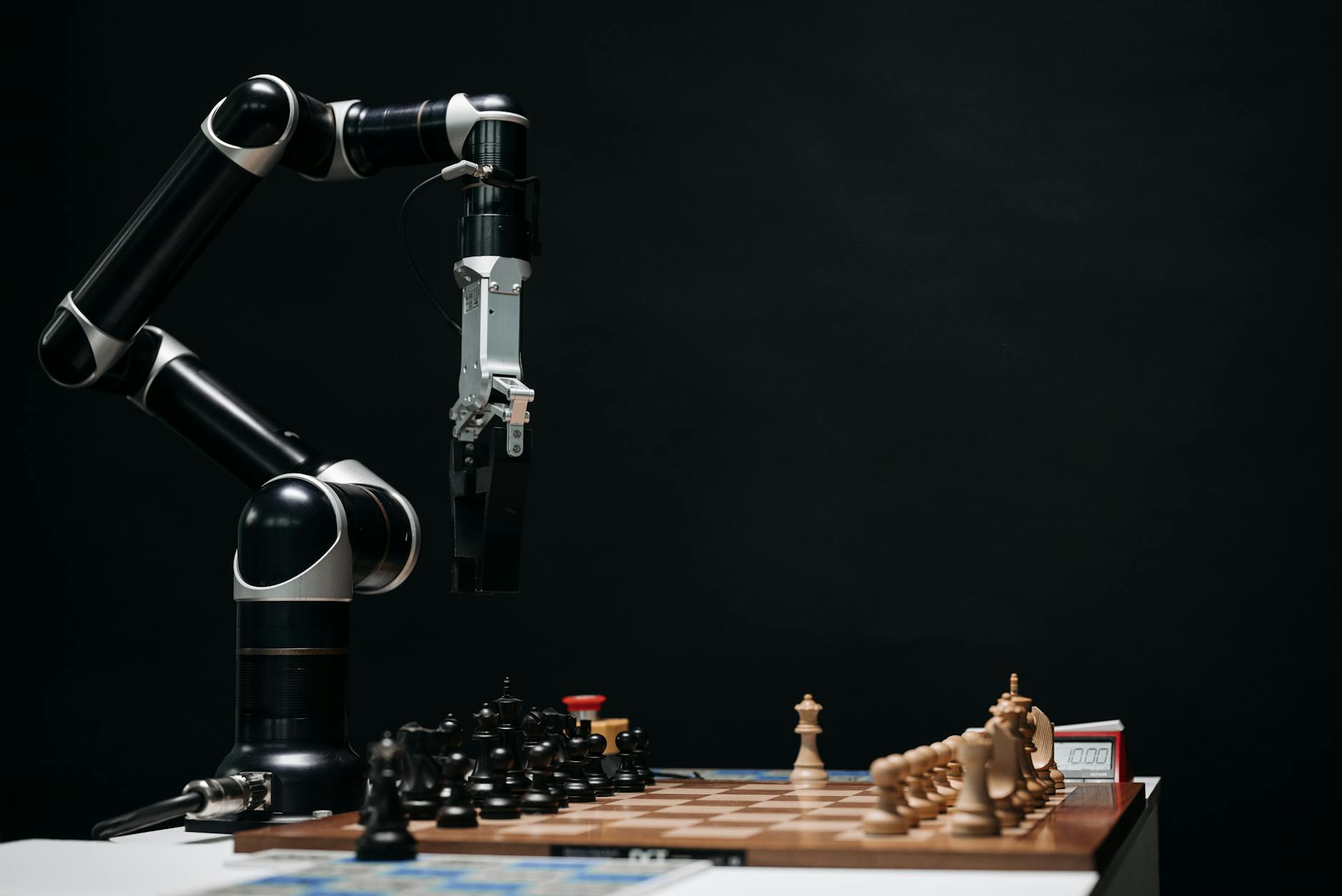Delve into the evolution of AI, from its humble beginnings to its potential future impact on industries and society.
Table of Contents
Artificial Intelligence, commonly known as AI, has become a buzzword in today’s technology-driven world. From virtual assistants to self-driving cars, AI is transforming how we interact with machines and the world around us. In this daily blog series, we will delve into the fascinating world of AI, exploring its origins, current applications, benefits, challenges, and ethical considerations. Join us as we unravel the power of AI and speculate on its future direction.
Introduction to AI
AI refers to the simulation of human intelligence by machines. It encompasses a broad range of technologies, including machine learning, natural language processing, and computer vision. AI has the capacity to learn from data, adapt to new inputs, and perform tasks that typically require human intelligence.
Over the years, AI has made significant advancements, thanks to advancements in computing power, data availability, and algorithms. Today, AI is not just a concept but a reality that is reshaping industries and societies worldwide.
Historical Context of AI
The roots of AI can be traced back to the 1950s when pioneers like Alan Turing and John McCarthy laid the foundation for the field. Early AI research focused on symbolic reasoning and logic-based systems. However, it wasn’t until the 21st century that AI truly began to flourish with the advent of neural networks and deep learning.
Key milestones in AI development include the creation of IBM’s Deep Blue, which defeated world chess champion Garry Kasparov in 1997, and the emergence of virtual assistants like Siri and Alexa in the 2010s. These achievements have paved the way for the widespread adoption of AI across various domains.
Current Applications of AI
AI is being deployed in a wide range of industries, from healthcare and finance to transportation and retail. In healthcare, AI is revolutionizing diagnostics and treatment planning by analyzing medical images and genetic data. In finance, AI algorithms are used for fraud detection and stock market prediction. Self-driving cars rely on AI to navigate roads and make real-time decisions.
Everyday technologies like virtual assistants and recommendation systems leverage AI to provide personalized experiences and streamline daily tasks. Whether it’s suggesting movies on Netflix or answering questions on Google, AI has become an integral part of our digital lives.
Benefits of AI
The benefits of AI are manifold. AI has the potential to improve efficiency, accuracy, and decision-making processes in various domains. In healthcare, AI can help doctors diagnose diseases more accurately and prescribe personalized treatment plans. In manufacturing, AI-powered robots can perform complex tasks with precision and speed.
Moreover, AI has the capacity to transform industries and create new business opportunities. By automating repetitive tasks and augmenting human capabilities, AI can drive innovation and productivity. As AI continues to evolve, it holds the promise of enhancing quality of life and addressing societal challenges.
Challenges and Ethical Concerns in AI
Despite its potential benefits, AI also presents challenges and ethical concerns. Job displacement is a major worry as automation threatens to replace certain roles in the workforce. Bias in AI algorithms can lead to discriminatory outcomes, perpetuating existing social inequalities. Privacy issues arise as AI systems collect and analyze vast amounts of personal data.
Ethical considerations in AI development are crucial to ensure that AI technologies are used responsibly and ethically. Transparency, accountability, and fairness must be prioritized to mitigate the risks associated with AI deployment. As AI becomes more pervasive, addressing these challenges will be paramount.
Future Direction of AI
Looking ahead, the future of AI holds immense potential. Emerging trends in AI research and development include explainable AI, AI ethics, and AI-driven creativity. Explainable AI aims to make AI systems more transparent and interpretable, enabling users to understand how algorithms make decisions.
| Historical Context | Current State | Future Direction |
|---|---|---|
| The term “artificial intelligence” was coined in 1956 at the Dartmouth Conference. | AI is now being integrated into various industries such as healthcare, finance, and transportation. | AI is expected to continue to advance, with increased focus on ethics, transparency, and regulation. |
| AI systems were initially limited to performing simple tasks. | AI can now perform complex tasks such as natural language processing and image recognition. | AI is likely to become even more sophisticated, potentially surpassing human capabilities in certain areas. |
| AI experienced periods of hype and disappointment known as “AI winters”. | AI is currently experiencing a resurgence in interest and investment. | AI is projected to play a crucial role in shaping the future of technology and society. |
AI ethics is gaining traction as policymakers and industry players grapple with the ethical implications of AI technologies. Ensuring that AI is developed and used in a responsible and ethical manner is crucial to building trust and public acceptance. AI-driven creativity explores the intersection of AI and human creativity, opening up new possibilities in art, music, and design.
Can Skynet Happen?
The concept of a rogue AI system like Skynet from the Terminator franchise raises pressing questions about the risks of AI. While the likelihood of a doomsday scenario like Skynet taking over the world may seem far-fetched, it underscores the importance of AI safety and governance.
To prevent a catastrophic AI event, researchers and policymakers are developing safeguards such as AI ethics guidelines, transparency requirements, and oversight mechanisms. By incorporating ethical principles and robust controls into AI systems, we can mitigate the risks of unintended consequences and ensure that AI benefits humanity.
Case Studies of AI Success Stories
Real-world examples of AI success stories abound, demonstrating the transformative power of AI technology. From improving healthcare outcomes to optimizing supply chains, AI is driving innovation and unlocking new possibilities. Organizations and companies that have embraced AI solutions are reaping the benefits of increased efficiency and competitiveness.
By sharing these case studies, we can showcase the positive impact of AI on society and inspire others to leverage AI for positive change. From personalized medicine to smart cities, AI is reshaping the way we live and work, paving the way for a smarter and more connected future.
Expert Interviews and Perspectives
Throughout this blog series, we will feature interviews with industry experts, researchers, and policymakers in the field of AI. These experts will share their insights and perspectives on the current state and future potential of AI. By tapping into their knowledge and experience, we can gain a deeper understanding of the complexities and possibilities of AI.
Engaging with thought leaders in the AI community will enrich our exploration of AI trends, challenges, and opportunities. Their expertise will illuminate the path forward for AI innovation and pave the way for informed decision-making in the evolving landscape of artificial intelligence.
Interactive Polls and Q&A Sessions
As we embark on this journey into the world of AI, we invite readers to participate in interactive polls on AI-related topics. These polls will engage you in thought-provoking discussions and provide insights into your perspectives on AI issues. In addition, we will host Q&A sessions with experts to address your questions and concerns about AI.
Your participation is valuable in shaping the dialogue around AI and driving meaningful conversations about its impact on society. By joining us in these interactive engagements, you can contribute to a more nuanced understanding of AI and its implications for our collective future.
With each daily blog post, we aim to shed light on the rise of AI and its profound implications for society. From historical context to future direction, we will explore the multifaceted nature of AI and its transformative potential. Join us on this enlightening journey into the world of artificial intelligence and discover the limitless possibilities that AI holds for the future.
What are the main applications of AI?
AI is used in healthcare for diagnostics, finance for fraud detection, and transportation for self-driving cars. It also powers virtual assistants and recommendation systems in everyday technology.
What are the benefits of AI?
AI can improve efficiency in various industries, enhance decision-making processes, and create new business opportunities. It has the potential to transform healthcare, manufacturing, and other sectors.
What are the challenges and ethical concerns in AI?
Job displacement, biased algorithms, and privacy issues are some challenges in AI. Ethical concerns include transparency, accountability, and fairness in AI development and deployment.
What is the future direction of AI?
AI is moving towards explainable AI, AI ethics, and AI-driven creativity. These trends aim to make AI more transparent, ethically responsible, and capable of enhancing human creativity.


Recent Comments